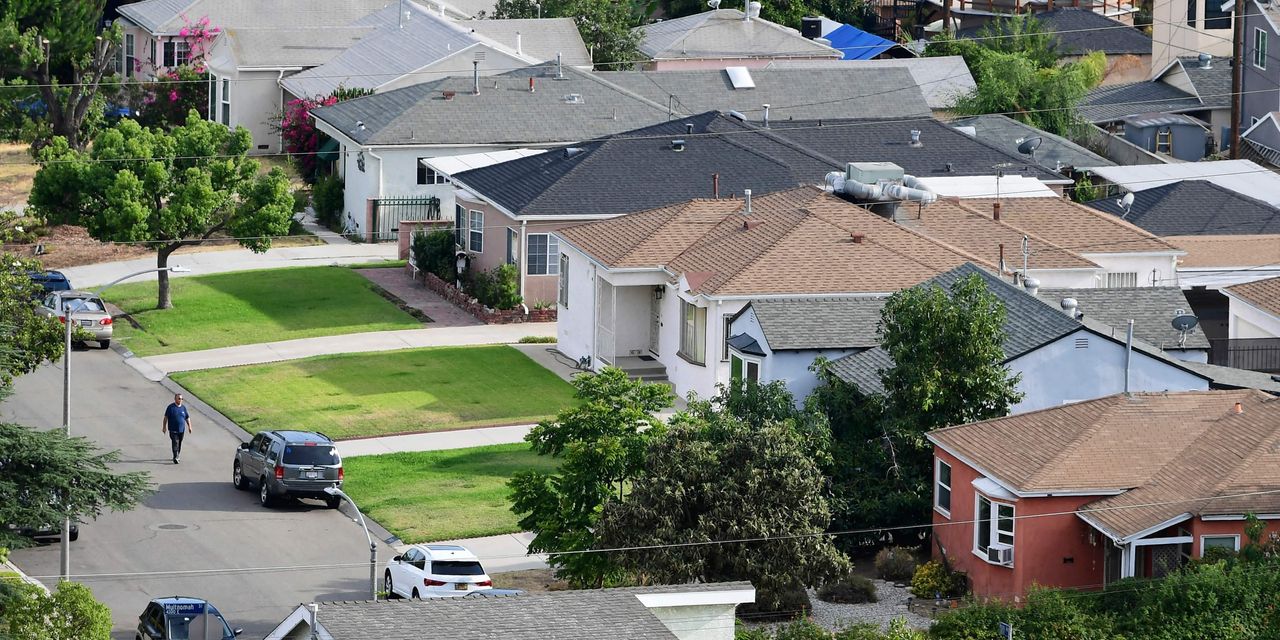The numbers: Mortgage rates rose across the board, with the 30-year mortgage backed by the Federal Housing Authority surging to the highest level since 2002.
Rates surged partly due to a downgrade in the U.S. government’s debt. The 30-year was averaging at 7.09% at the start of August, and FHA-backed loans at 7.02%, which altogether pushed overall mortgage applications down for the third month in a row.
Demand for both purchases and refinancing fell. Overall, that pushed down the market-composite index — a measure of mortgage application volume — the Mortgage Bankers Association (MBA) said on Wednesday.
The market index fell 3.1% to 194.5 for the week ending August 4 from a week earlier. A year ago, the index stood at 279.8.
Key details: Rising mortgage rates are discouraging home buyers. The purchase index — which measures mortgage applications for the purchase of a home — fell 2.7% from last week.
Homeowners are also not keen on refinancing, given how high rates are. The refinance index fell 4%.
The average contract rate for the 30-year mortgage for homes sold for $726,200 or less was 7.09% for the week ending August 4. That’s up from 6.93% the week before, the MBA said. The 30-year is at the highest level since November 2022.
The rate for jumbo loans, or the 30-year mortgage for homes, sold for over $726,200, was 7.04%, up from 6.89% the previous week.
The average rate for a 30-year mortgage backed by the FHA rose to 7.02% from 6.85%. The 30-year backed by FHA is at the highest level in 21 years.
The 15-year rose to 6.51%, up from last week’s 6.39%.
The rate for adjustable-rate mortgages rose to 6.36% from last week’s 6.18%.
The big picture: News about a downgrade of the nation’s debt in part has pushed rates up, adding even more borrowing costs to the typical home buyer’s plans to buy a home.
Home buyers may see the current rate environment as a passing phase, opting to take on a mortgage at 7% in hopes of refinancing later, but with few home listings in many parts of the country and high home prices, they may find themselves forced to hit pause on their home shopping process.
Ultimately, higher rates and lower demand in the near-term may be a good thing for the U.S. economy: Higher mortgage rates are slowing down housing markets across the country, which may lead to shelter inflation cooling off and bringing down overall inflation over the next year and a half, according to a separate report by the San Francisco Fed. The closer the U.S. Federal Reserve gets to taming inflation, the sooner they can stop hiking interest rates, and by extension, mortgage rates.
What the MBA said: Rates rose last week in part due to Fitch ratings downgrading U.S. government debt, Joel Kan, deputy chief economist and vice president at the MBA, said in a statement. “Rates increased for all loan types in our survey,” he added.
Home buyers are not only struggling with high rates, but also a low for-sale inventory, he added, leading the purchase index to fall for the fourth month in a row.
Market reaction: The yield on the 10-year Treasury note
BX:TMUBMUSD10Y
was above 4% in early morning trading Wednesday.
Read the full article here





